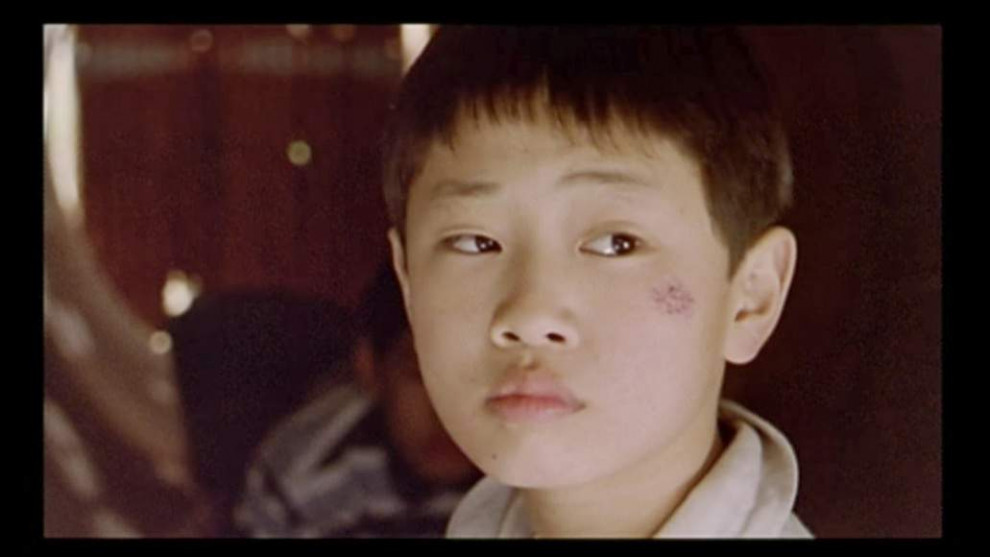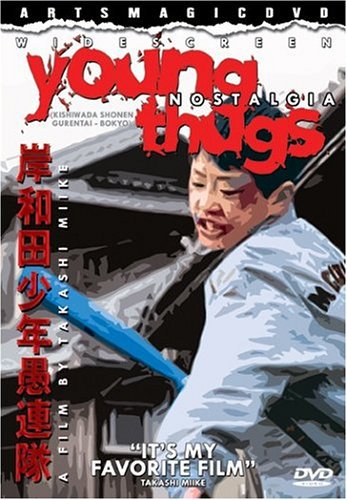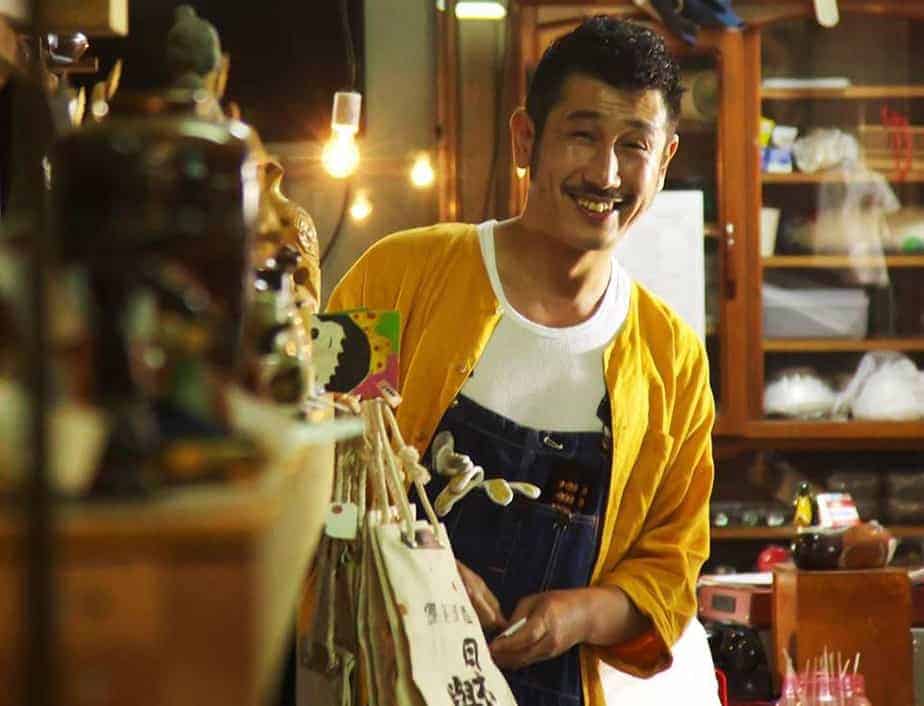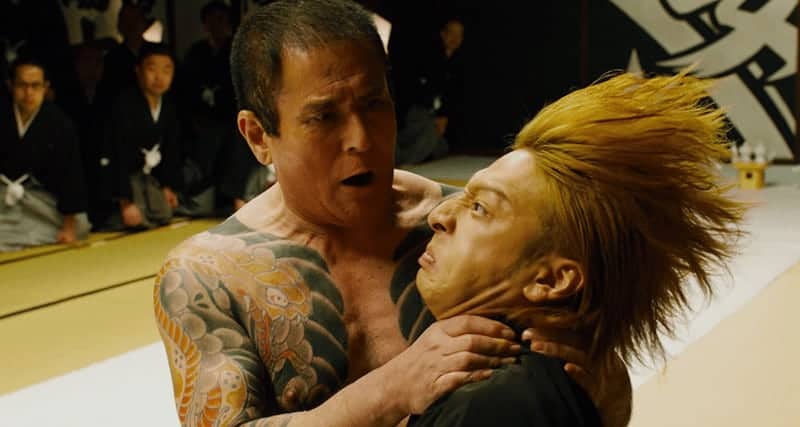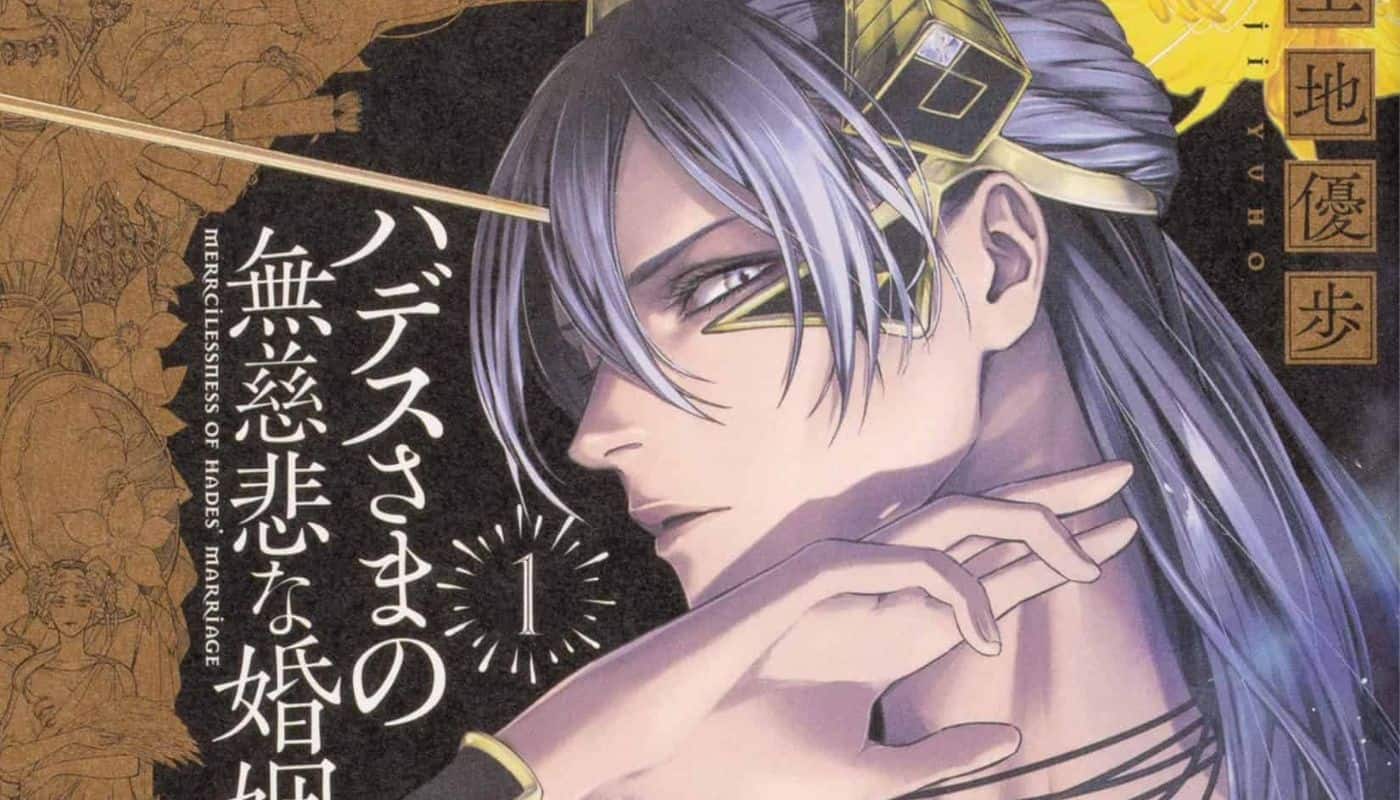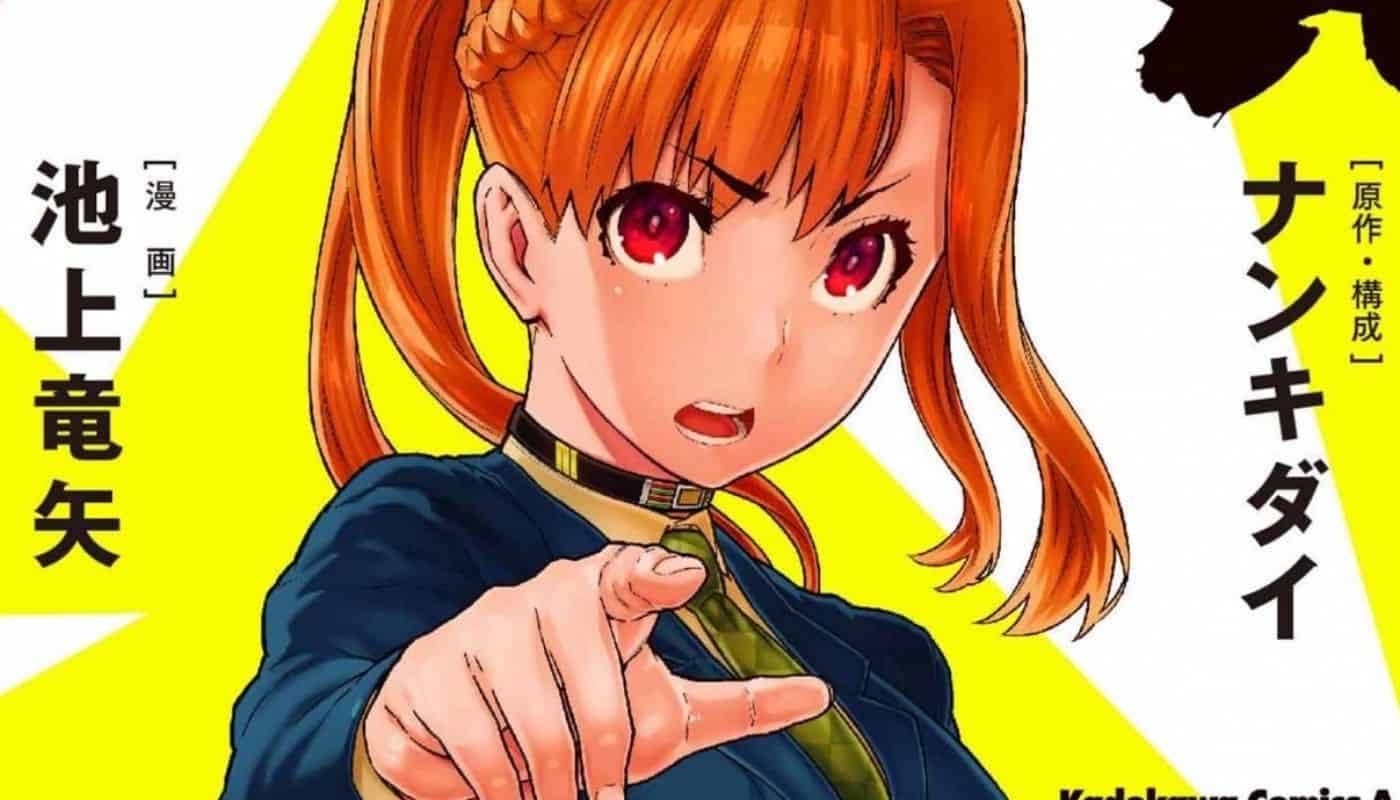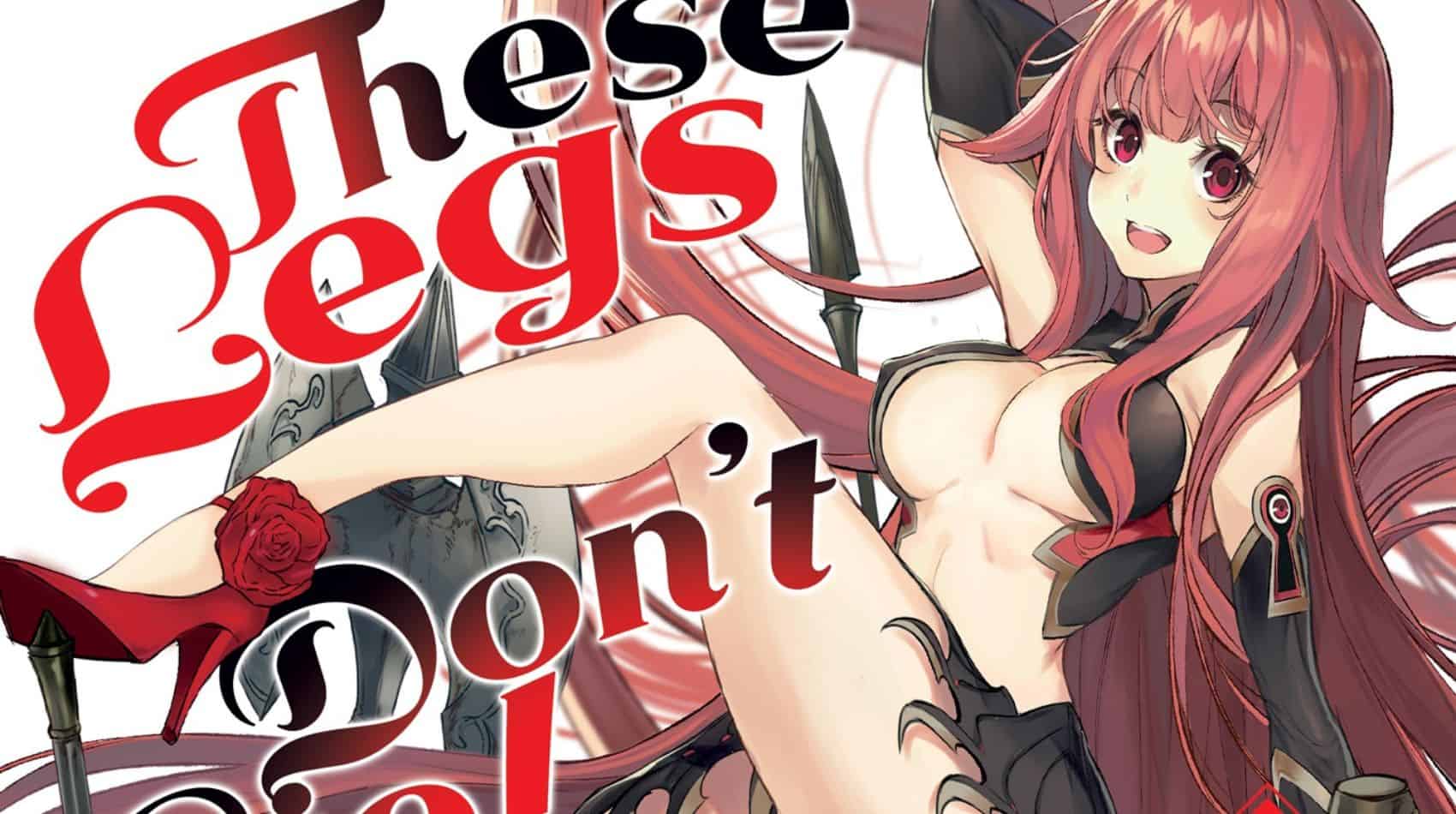“Wherever we go…however far we walk…everything will stay the same.”
If we take a body of work as diverse as Takashi Miike, quite naturally one asks the question whether the director has a favorite. As Miike has repeatedly stated in the past, this particular honor goes to his 1998 film “Young Thugs: Nostalgia”, a prequel to “Young Thugs: Innocent Blood” released the year before and also based on the autobiographical novel by Riichi Nakabana. Considering films like “Blues Harp, “Ley Lines” and the “Dead or Alive”-series explored themes like origin, identity and growing up, the choice of this project, along with the finished product being Miike's favorite film should not come as a surprise.
Buy This Title
In general, both films, “Innocent Blood” and “Nostalgia”, define what has become the side of Miike, which is at times forgotten among the wildness of his other films, a tendency towards the romantic and the nostalgic. According to author Tom Mes, “Young Thugs: Nostalgia” is, above all, also a depiction of family life within the political and social upheavals of Japan at the time the film is set. As the 1960s were coming to an end, the country was shaken by student riots, but also shaped due to the World Expo. In a nutshell, Japan presented itself as a country on the move, a place preparing for the challenges of the future. Interestingly, Nakabana's novel offers an anachronism to that general feeling of change and upheaval, presenting a protagonist more occupied with looking back to his family's past rather than highlighting the present or future prospects.
Given the context of his whole body of work and the themes defining it, Miike focuses once more on those left behind by society. At the same time, and similar to other films the director made in the year of “Nostalgia”'s release, there is a creeping realization of the kind of damage human society produces, the ever growing gap between the rich and poor. While the protagonists in “Ley Lines” or “Dead or Alive” fled to the city in order to escape their outsider status and feeling of hopelessness, Miike and screenwriter Masa Nakamura emphasize the role of children born into this kind of world, they way the view it and how their environment shapes them.

Riichi (Yuki Nagata) is a young boy living in the city of Kishiwada. While his usually drunk and unpredictable father (Naoto Takenaka) wants to toughen him up, giving him his first beer and beating him around, his mother (Setsuko Karasuma) tries her best at enduring the situation at home, occasionally leaving the family when things become too bad to bear for her. Even Riichi's teacher, Miss Ito (Saki Takaoka), who, alarmed by the hangover and wounds of her pupil, attempts to talk some sense into his father, she realizes there is nothing she can do. As matters at school become worse for him and his mother leaves again, Riichi, together withthis two friends Kotetsu and Gasu, decides to run away.
Perhaps one of the lasting images a viewer takes away from “Young Thugs: Nostalgia” is the image of the field of holes. What seems to be a meaningless task, especially considering the way Riichi's father is proud of the hole he dug when he was a teenager, becomes a symbol for the wounds of the past his son's story is about. Since no one particularly cares for them even years later, they are still there with the young boy spending minutes, sometimes hours in the whole lying down and staring into the blue sky. Then he remembers the time his father told him about the hole, the pride in his voice, the determination in his movements, suggesting he was going to dig another one right next to it and continue to “fight with the earth” as he calls it. In the end, this is quite a powerful, yet also sad image of being lost in a present, a moment of longing for a past which seems all the more desirable as the bleak truth of dreams unfulfilled.
Given this context, you can easily see how “Young Thugs: Nostalgia” is in many ways a peak in Miike's body of work. Similar to many other protagonists of movies ranging from “Ley Lines”, “Rainy Dog” and the “Dead or Alive”-series, Riichi's age, environment and the times make him perhaps more susceptible to the innocent dreams of a family, happiness and pride. As we know quite early on in the film, all of these aspects are missing from the reality of his life, thus burying himself in a hole becomes a very understandable escape for the young boy.
However, as Tom Mes quickly adds, as much as this film depicts the “childhood idyll”, there is no tragic potential in the characters nor in their conflicts. If one was to compare Miike's child protagonists to others from films like Rob Reiner's “Stand By Me”, Richard Donner's “The Goonies” or Steven Spielberg's “E.T. the Extra-Terrestrial” there is nothing “cute” about them. According to Mes “cute” is an adult term used to look down upon children, a pejorative label.
Additionally, the environment of Riichi and his friend is one demanding to toughen up, something his father tries to achieve. For many viewers, it might be quite contradictory to see the obvious abuse within the family of Riichi without their unit disintegrating completely. Even in the worst moments, there is no question staying together is still the best option available. Consequently, there is a back and forth of quarreling and forgiving when, for example, Riichi's father sobers up and apologizes to his wife with his tail between his legs.

Meanwhile the changes in the world are inevitable and immense. With the TV delivering the newest images of the student protests and the preparation of the Apollo XI mission in the USA, the world seems to be in turmoil, on the brink of change, the holes of the past to be filled. Especially the Apollo-mission becomes a symbol for the necessity of change, with Riichi and his friends even building a model of the spaceship for a science fair at their school. The shift between the static to the dynamic, inherent in the music by Koji Endo and the cinematography by Miike's long-time-collaborator Hideo Yamamoto, suggests the change from the apparent standstill towards a more progressive future. Eventually the view towards the moon becomes a constant reminder of what is possible if one just believes and is willing to do something.
Nevertheless, Miike's protagonists (and possibly Miike himself) remain skeptical of the promise of progress. In a scene taking place at a strip club often visited by Riichi's father, one of the girls present remarks on the premise of looking forward by saying: “It's all to do with harmony and the penis of humanity” Even though she obviously misspoke, the phrase becomes an in-joke among the girls and the costumers, something they scream and laugh about even as the crowd of supporters for the World Expo march through the streets singing the theme song of the event. In scenes such as these, Miike seems to be highly skeptical of what is about to come, about the nature of the change that might favor those characters in the penthouses and mansions of the world.
In conclusion, “Young Thugs: Nostalgia” is a film about childhood, about looking back on the past and a vision of the future, one of the individual as well as the nation questioning which one might be the more honest. Within the body of work of Takashi Miike, it is an unusually underrated film, predicting movies such as “Blues Harp” and “The Bird People in China” as well as the many child characters in the films of Miike. It is a film about an era during which it was not important what was there, but what you could see for yourself even if the others could not. As many stress the excessive and the crazy in Miike's work, one should not ignore the touching and heartfelt portrayal of childhood and growing up he has managed to out on screen. Both “Young Thugs”-films are great examples for that facet of his talent.
Sources:
Mes, Tom (2003) Agitator: The Cinema of Takashi Miike. FAB Press


